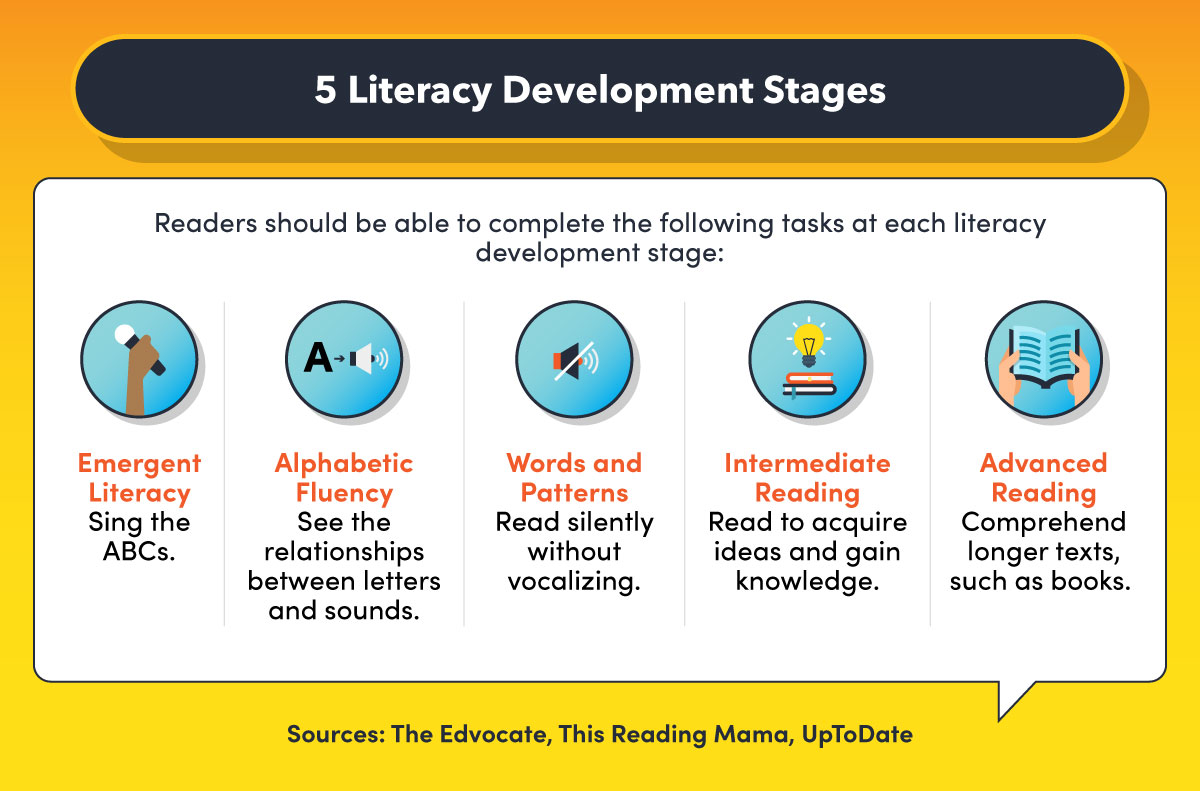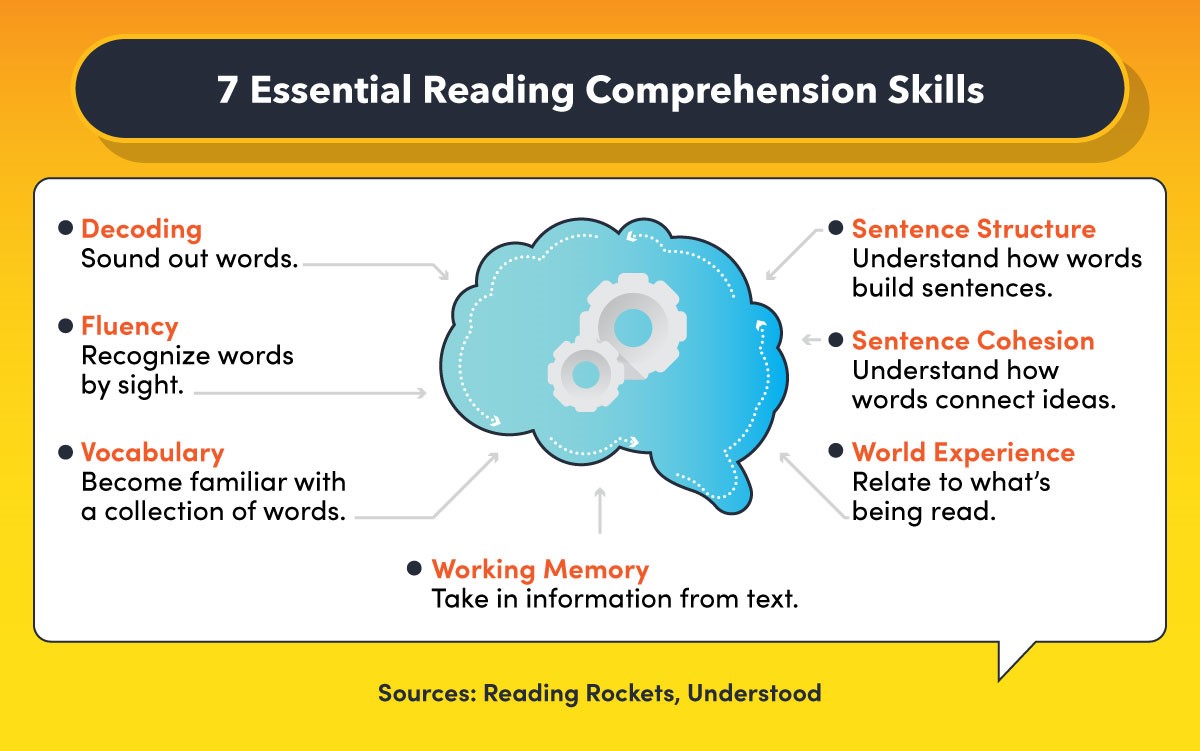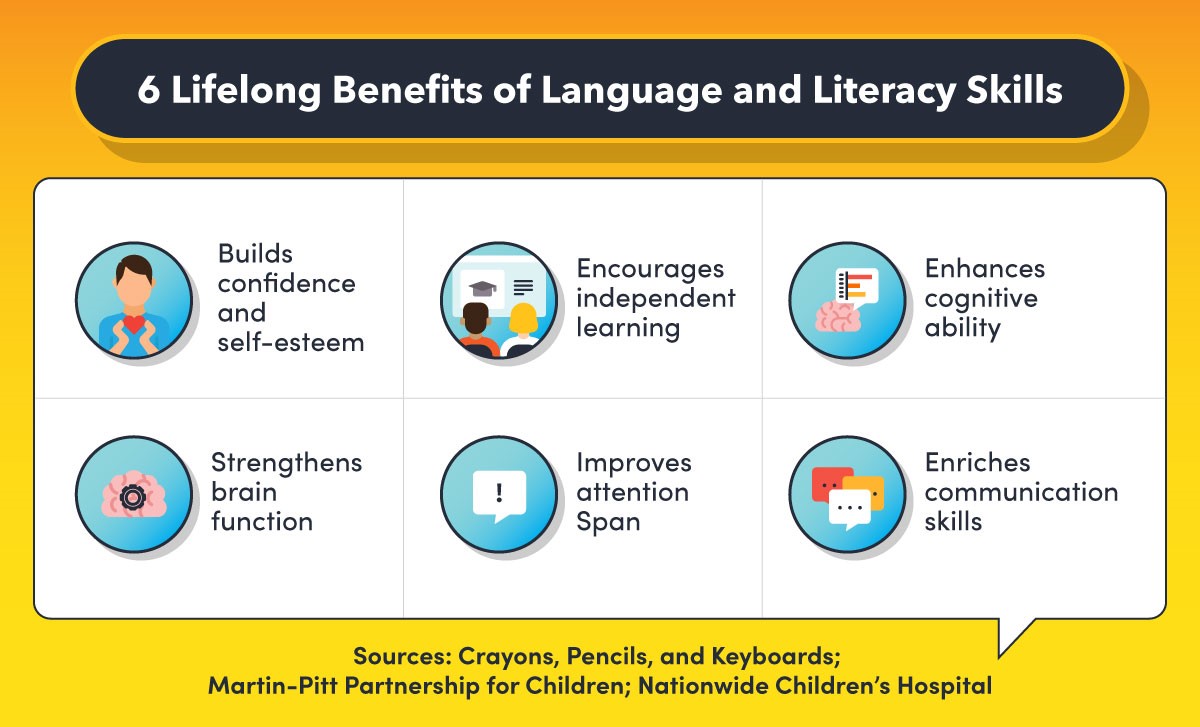Literacy Success In Children With 5 Essential Skills
12th December 2022

The concept of literacy success strives at securing a better future for children by helping them develop their literary skills from an early age. Nonetheless, teachers dealing with special needs students find it a little difficult in identifying children with LDs and develop appropriate strategies to combat the issue.
It is a no-brainer that every child needs to develop visual and auditory literacy from the initial stages in order to learn, grow and achieve success. Thus, in this post, let us understand what are literary skills, the various types, and how you can develop them in your classroom.
What Are Basic Literacy Skills For Preschoolers?
Children between the ages of 3-5 are considered to be preschoolers. At this stage, teachers need to lay a strong foundation of literacy and language skills. Literacy skills involve the development of reading and writing competence. It comprises of concepts like print, letter and word recognition, and phonological awareness.
Moreover, since language is a blend of listening and reading skills, the more a child is exposed to basic concepts and vocabulary, the more their language will be enhanced. Since preschoolers are expected to understand complex sentences and look for new information but are not willing to read books on their own, teachers should come up with fun and playful techniques.
Top Literacy Skills And How To Build Them
Here are the top 5 skills for childhood literacy and the ways you can improve them:
- Phonetic Awarenes
Phonetic awareness is all about gaining the perception of how a particular word sounds. When a child can recognize the individual sounds of a single word, then we can say that they are becoming phonetically aware. Kids often start to develop this skill naturally by listening to their teachers, parents, etc.
However, for children with special needs determining the different parts of a word and developing phonemic awareness by themselves might be difficult. Hence, it is the role of the teachers to continue building them as the child grows. Being able to break down a word will strengthen their reading and writing skills and will also help them understand the brand-new world.

Source: online.maryville.edu
If you are wondering how to approach and enhance phonetic skills in your classroom, here are some tips to help you out.
>> Create poems, read books and practice rhyming words with your kids. This will enable them to be familiar with words that end with the same sound.
>> Employ singing practice in class and break down the song lyrics into individual sounds and syllables.
>> Practice reading aloud tricky or unknown words to help the learners grasp the sounds and pronunciation easily.
- Print Awareness
One of the most crucial literacy skills a child can develop is the awareness of books and words. Children who are aware of the print media around them and can recognize the individual sounds are more likely to develop a love for writing and reading.

Source: online.maryville.edu
As a teacher, you should always encourage curiosity about books. This is because once they get familiar with books the love for reading through the words will follow. Here are some ways to enhance this skill:
>> Read a book together in the classroom and allow a child to volunteer. Point out the words on the page and ask the class to repeat them after you.
>> Bring attention to the learned words when you are out for field trips, or park sessions by pointing them out on restaurant menus, street signs, etc.
>> Schedule a visit to the library and allow each child to pick out a book for themselves. This will allow them to be familiar with various types of books and determine the ones that make them excited.
- Vocabulary
Vocabulary is comprised of all the words that make up a particular language. Having a large set of vocabulary base is essential for reading comprehension. Consequently, strong and poor readers can be differentiated based on their vocabulary skills.
Children who struggle with reading in their initial days often lack strong vocabulary. Since they are unable to grasp the meaning behind every word, they start to develop a dislike towards reading. If you as a special education teacher want to prevent this from happening and want to improve their vocabulary skills, here are some ways to do that.
>> Engage in frequent reading sessions and practice reading out loud, especially the picture books that have the definition of each picture.
>> Point out new words and explain their meanings and participate in fun vocabulary games every once in a while.
>> Allow your children to converse and communicate regularly on random topics like what they had for breakfast, their night routine, etc. These will help them learn about various things and pick out new words.
- Storytelling
The art of storytelling is crucial to reading comprehension. Since the dawn of spoken languages, people tell all kinds of oral stories. These not only serve as entertainment but also are an important way to teach values and morals to future generations.
Furthermore, storytelling is a good way to keep your child engaged and develop that love for reading. Everyone loves a good story and here are some ways you can encourage the storytelling method in a classroom.
>> Plan a storytelling session every once in a while and ask your children to come up with a story of their own. Be the pioneer and ask them to follow the lead.
>> Start a story and ask them to predict the end. Allow them to be as creative as possible and encourage them to think of all sorts of alternative endings.
>> Read a picture book and ask the kids to narrate the story in their own way. You can also ask them to act it out by giving their own dialogues.
- Spelling
Devoting time towards letter recognition and spelling is another crucial milestone in developing literacy skills. The advantages of having strong spelling skills are similar to having phonetic awareness. They will be able to break down large words into individual letters.

Source: online.maryville.edu
If you want all your children to become stronger writers and readers, then here are some ways to enhance this skill.
>> Start by enabling them to spell out their own names and then gradually move on to parents, siblings, classroom items, etc.
>> Practice syllables and words that have irregular spellings like ‘dye’, ‘night’ etc.
>> Focus on alphabet books while reading and point out any interesting words and ask your students to spell them out loud with you.
The Bottom Line
All these five skills are necessary for children to develop to achieve success in the long run. But how early or late a child develops these skills can be affected by factors like speech impediments, learning disabilities, hearing, vision, etc. Hence, it is essential to identify these learning disabilities and for this, you can consider taking up an Online Learning Disabilities Course for Teachers. This will enable you to help them with whatever they may need to thrive.
Leave a comment!
Looking for earning a special needs education teaching certification? If yes then call us at +6621055721 or Call/WhatsApp: 1- 213 – 233 - 9490 or drop a mail at asiancollegeofteachers@gmail.com. Chat with our expert if you have any questions, send us an email to find out more.
Written By : Park Jin Ae

